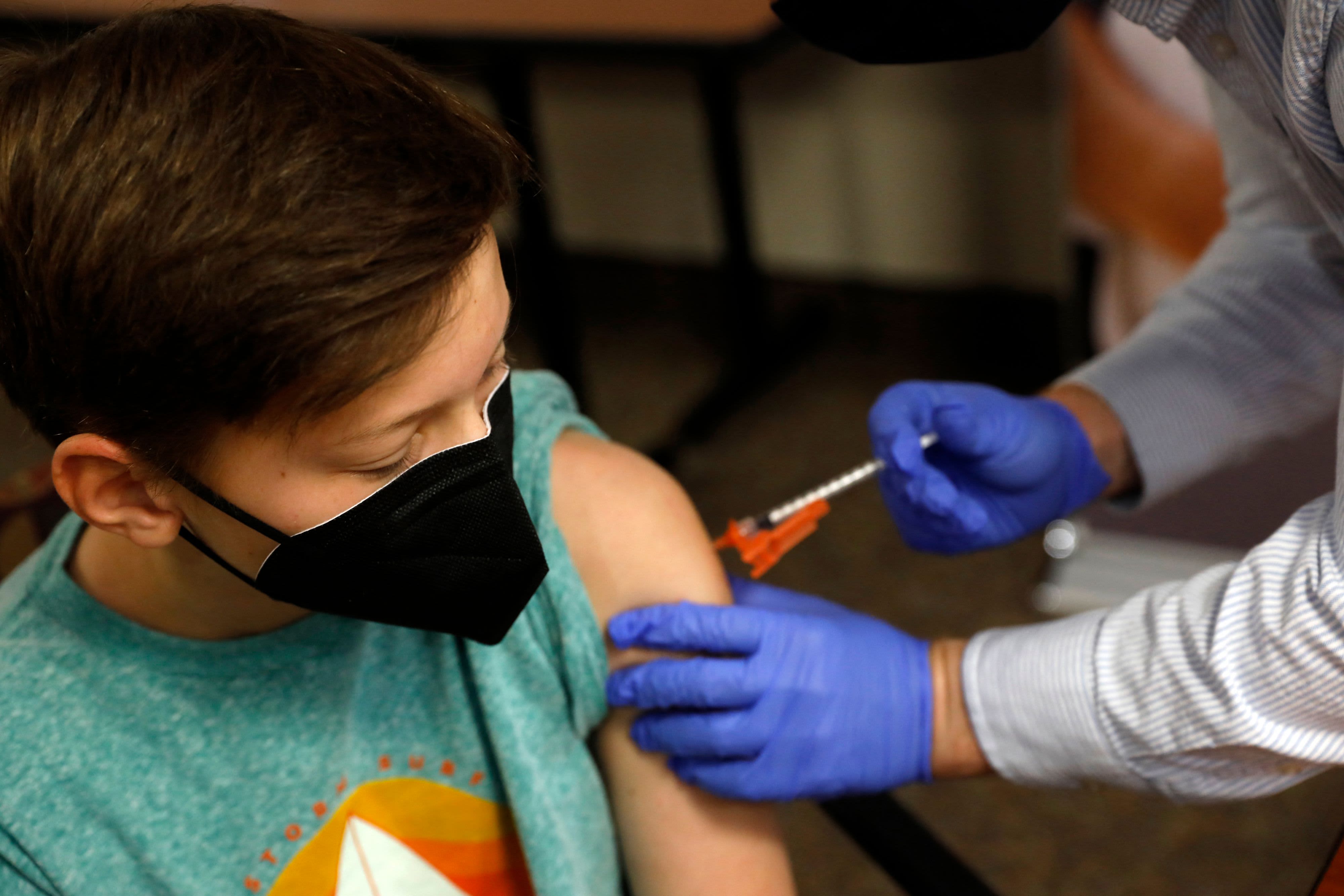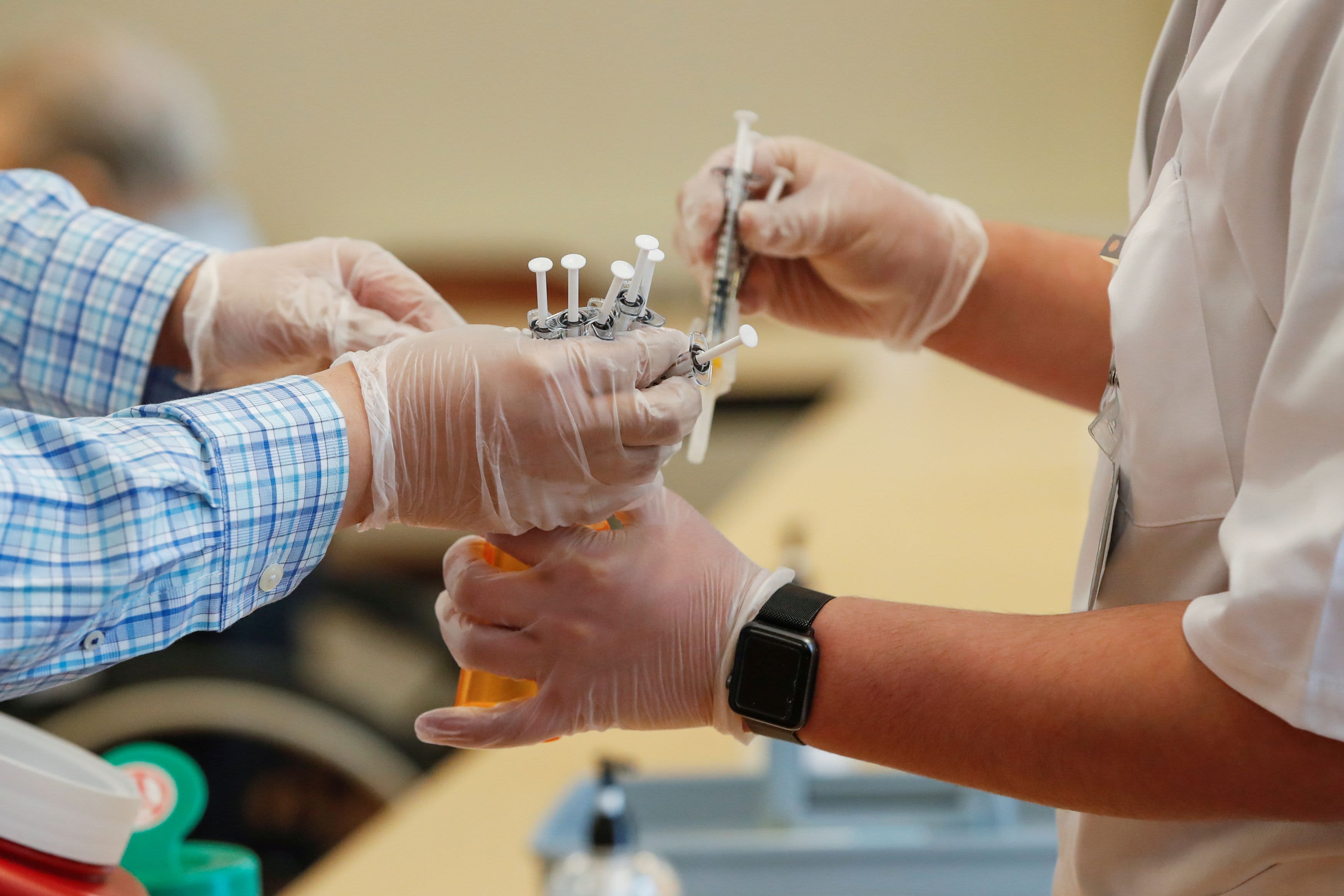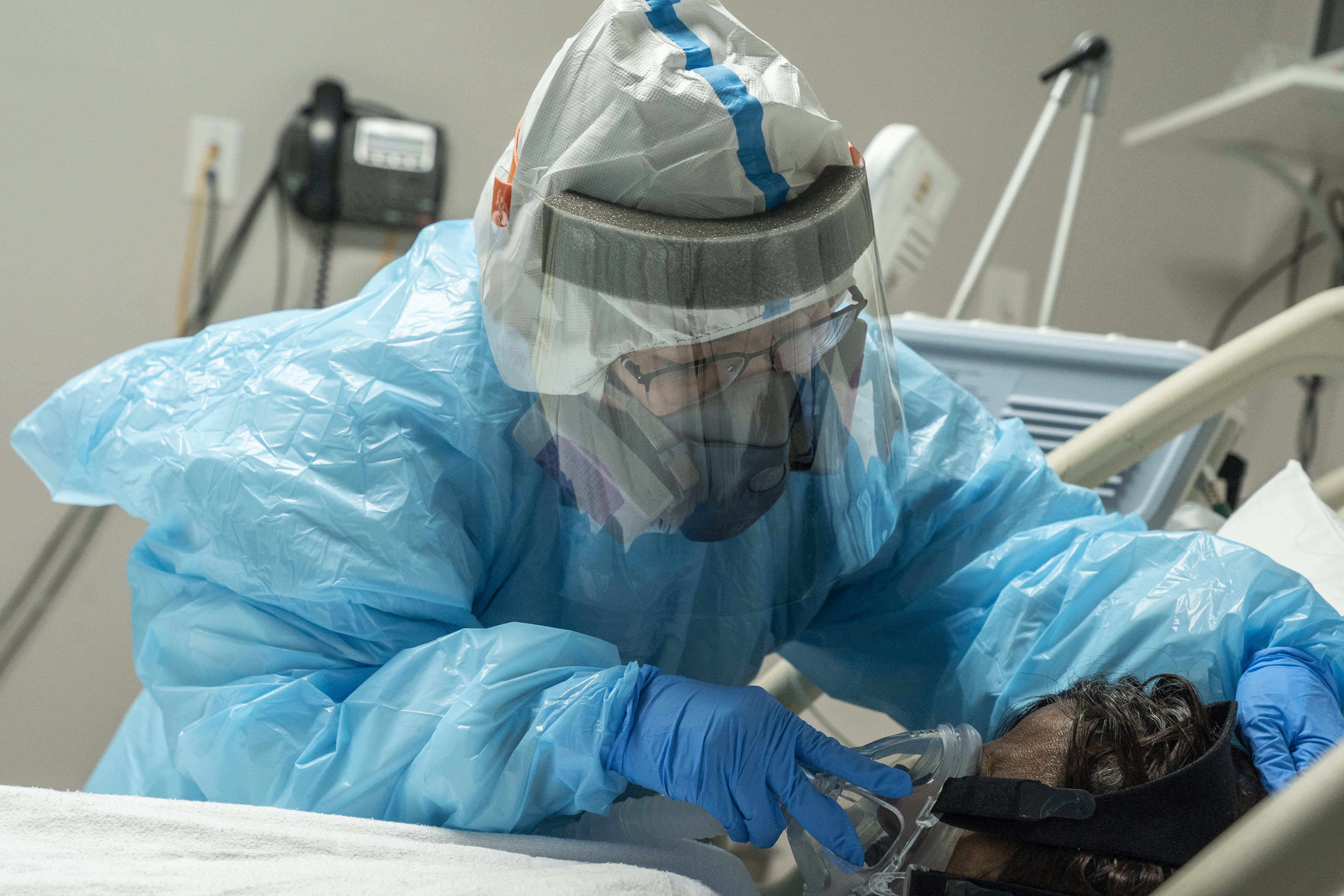Lollapalooza, one of Chicago's biggest summer events, is set to return this week with new health protocols due to the COVID-19 pandemic, but as Chicago's COVID numbers rise again, are city officials concerned?
Meanwhile, might mask mandates return in Illinois or Chicago?
And the positivity rate of coronavirus testing in Illinois has more than doubled in the past two weeks, according to data from state health officials, as hospitalization metrics also continue to rise.
Here's what you need to know about the coronavirus pandemic across Illinois today:
Lollapalooza Returns to Chicago This Week as COVID Cases Continue to Rise
Lollapalooza, one of Chicago's biggest summer events, is set to return this week with new health protocols due to the COVID-19 pandemic, but as Chicago's COVID numbers rise again, are city officials concerned?
The city's largest music festival will be held at full capacity from July 29 to Aug. 1. It comes at a time when the city is seeing its average daily number of new cases more than double in a matter of weeks.
To enter Lollapalooza, concert-goers must provide a printed copy of the COVID vaccine card, vaccine record or negative coronavirus test within 72 hours of entering. For those who are not vaccinated against COVID-19, a mask is required while inside the festival at all times.
Chicago's average daily number of new cases was up to 130 per day early Monday - a 76% increase over last week.
The city's average daily case rate was at 90 per day last week and 41 per day the week before that, meaning it's more than tripled in roughly three weeks - though it is still significantly lower than the more than 700 cases per day the city was seeing earlier this year and last, before vaccines were widely available.
Feeling out of the loop? We'll catch you up on the Chicago news you need to know. Sign up for the weekly Chicago Catch-Up newsletter.
Hospitalizations in Chicago are up 19% from last week, though deaths are down 43%, while the positivity rate in testing is up to 2.2% as of Monday, up from 1.5% last week and 1% the week before.
Coronavirus in Illinois: 7,983 New COVID Cases, 47 Deaths, 139K Vaccinations in the Past Week
Illinois health officials on Friday reported 7,983 new COVID-19 cases in the past week, along with 47 additional deaths and more than 139,000 new vaccine doses administered.
In all, 1,407,929 cases of coronavirus have been reported in the state since the pandemic began. The additional deaths reported this week bring the state to 23,401 confirmed COVID fatalities.
The state has administered 241,150 tests since last Friday, officials said, bringing the total to more than 26 million tests conducted during the pandemic.
The state’s seven-day positivity rate on all tests rose to 3.3% from 1.9% the week before and 1.5% two weeks prior - meaning the positivity rate has more than doubled in the past two weeks. The rolling average seven-day positivity rate on individuals tested rose to 3.5%, up from 1.7% then 2.3% in the past two weeks, officials said.
Over the past seven days, a total of 139,495 doses of the coronavirus vaccine have been administered to Illinois residents. That brings the state’s average to 19,928 daily vaccination doses over the last week, down from the figures reported last Friday, per IDPH data.
State officials say Illinois this week crossed the threshold of 13 million vaccine doses administered since vaccinations began in December. More than 58% of adult residents in the state are fully vaccinated against COVID-19, with 73% receiving at least one dose.
As of midnight, 670 patients are currently hospitalized due to COVID in the state. Of those patients, 135 are in intensive care units, and 44 are on ventilators. All three metrics are a reported increase since last Friday.
Masks Required For All CPS Students This Fall, Officials Announce
Students and teachers will be required to wear face coverings and social distance while indoors this upcoming academic year, Chicago Public Schools announced Thursday.
Based on a letter sent to CPS families, students and staff will have to wear a mask regardless of COVID vaccination status while indoors, except when eating and drinking.
Face coverings will be able to be removed during recess and outdoor sports, the letter noted.
CPS will also require students remain three feet apart "whenever possible" and will use enhanced safety protocols, such as air purifiers, hand sanitizer and disinfecting.
Will Mask Mandates Return to Chicago and Illinois? Here's What You Need to Know
With increasing hospitalizations and mounting COVID-19 case numbers prompted by the Delta variant, municipalities across the country have re-imposed mask mandates and other public health mitigations.
Local leaders in at least five states, including California and Nevada, have reinstated mask requirements, issued facial covering recommendations or threatened the return of strict public health limits for all residents. On a national level, the Centers for Disease Control and Prevention continues to recommend that vaccinated people don’t have to follow such protocols in most settings.
Mask requirements have yet to be reintroduced in Chicago, Illinois or communities within the state. At a news conference Thursday, Gov. J.B. Pritzker was asked if he anticipated reissuing a mandate.
The governor didn't say whether the state plans to make such a move, but offered advice to resident as fears over the Delta variant grow.
"I want to remind everybody that they ought to wear masks whenever they're in a crowded area indoors or whenever you just feel like you're not completely safe," Pritzker said.
Pritzker Plans to Attend Lollapalooza, Says Festival is ‘Safe' If Vaccinated
Illinois Gov. J.B. Pritzker said Thursday that he plans to attend Lollapalooza, Chicago's largest music festival, next weekend, saying it is "safe" for those vaccinated against COVID-19.
"I intend to go to Lollapalooza. I'm bringing my wife and a few friends to Lollapalooza," Pritzker said in a press conference Thursday.
He continued, saying outdoor festivals are known to be safer than those indoors in terms of spreading COVID-19, but that he still recommends people wear a mask if with a large group.
"If you feel comfortable and you can put a little distance between yourself and other people and if you're vaccinated, I might add, it's safer," Pritzker said. "Little distance and vaccinated, it's safe for you to attend something like this."
Delta Variant: What to Know About the New Coronavirus Strain Causing a Surge in COVID Cases
Public health officials are sounding alarm bells throughout the United States, as the delta variant of the COVID-19 virus has led to a massive surge in cases in recent weeks.
According to research from Johns Hopkins University, the average number of daily COVID cases in the U.S. has gone up 66% in just the last week, and is up 145% from two weeks ago. Hospitalizations are also up during that time, leading officials to warn of potential mitigations in some locations.
So what exactly is the delta variant? What makes it different from previous strains of the COVID-19 virus? Do vaccines protect you against it?
Here's an exhaustive list of what we know so far about the variant itself and what is being seen in Chicago and Illinois.
Chicago Officials Predict Delta Variant Will Become City's Dominant COVID Strain by August
Chicago public health officials say that COVID-19 cases caused by the delta variant are rapidly increasing in the city, and that by next month the strain will likely be the dominant form of the virus in the city.
During a press availability on Tuesday, Dr. Allison Arwady, the commissioner of the Chicago Department of Public Health, said that the delta variant is causing approximately 44% of the COVID cases in the city, and that officials expect that the variant will surpass the 50% mark next month.
“One thing that we are seeing with the major surges (is that) it is being driven by the delta variant,” she said.
Monday Marks Last Day for CPS Students to Get First Dose of COVID Vaccine to Be Fully Vaccinated for School Year
Monday marks the last day for eligible Chicago Public Schools students to get their first dose of the COVID-19 vaccine in order to be fully vaccinated by the time the school year begins in August.
Students return to CPS classrooms on Aug. 30 this year, per the district's academic calendar.
A person is considered “fully vaccinated” two weeks after receiving the second dose of either the Pfizer or Moderna COVID vaccine, or two weeks after receiving the single-dose Johnson & Johnson vaccine.
The only one of the three vaccines currently authorized for emergency use on anyone younger than 18 is the Pfizer vaccine, which is currently available for ages 12 and up.
The two Pfizer doses are administered 21 days apart, so in order to be fully vaccinated by the first day of school, any CPS students between the ages of 12 and 17 would need to get their second dose no later than Aug. 16, after a first dose on July 26.
Chicago's top doctor reminded CPS families of this deadline in a news conference on Tuesday, warning that the city has seen average daily case rates double in the past two weeks and advising anyone who's eligible to get vaccinated but hasn't yet to do so as soon as possible to help prevent further spread of the pandemic.
159 Dead, 593 Hospitalized in Illinois Breakthrough COVID Cases
More than 150 people have died and nearly 600 have been hospitalized in Illinois due to COVID-19 in "breakthrough" cases after they were fully vaccinated, according to state health officials.
According to data updated Wednesday by the Illinois Department of Public Health, 159 people in Illinois have died due to COVID-19 or complications after being fully vaccinated. That figure equates to 2.3% of COVID-19 deaths in the state since Jan. 1, officials said.
At least 593 fully vaccinated people have been hospitalized in Illinois, IDPH said. The state only reports breakthrough infections among those who have been hospitalized or died, following guidance from the Centers for Disease Control and Prevention, IDPH said.
Those totals mean eight more fully vaccinated individuals have died and 30 more have been hospitalized in the past week since the state last updated its reported numbers.
The state does not publicize the number of residents who tested positive after being fully vaccinated but did not die or require hospitalization in order to "help maximize the quality of the data collected on cases of greatest clinical and public health importance," IDPH's website reads.
‘Sounding the Alarm': Chicago Mayor Warns of Rise in COVID Cases
Chicago Mayor Lori Lightfoot said she was "sounding the alarm" Tuesday due to a recent uptick in coronavirus cases across the city.
Citing a rise in both average daily cases and test positivity in Chicago largely attributed to the delta variant, Lightfoot said that while numbers are still well below the spikes seen during the peak of the pandemic, "it's still a concerning development that we want to not only stay ahead of, but to quash completely."
"If we allow the virus to continue to linger here in Chicago we will likely see further mutations, some of which our current vaccines may not be able to protect against and have to reinforce some of the restrictions that have come to infamously define much of 2020, and part of 2021," Lightfoot said during a coronavirus update alongside city health officials. "The reality is this scenario - the worst case - is entirely preventable, and that's because we have three different vaccines readily available to all of our residents, which offer very good protection against delta, and other new variants."
Gov. Pritzker on Rising COVID Cases: ‘If We Need to Take Stricter Mitigations We Will'
Illinois Gov. J.B. Pritzker warned Tuesday that stricter mitigations could return for areas seeing a rise in COVID cases.
"I believe strongly that we will impose mitigations as it's appropriate, where it's appropriate," Pritzker said in a one-on-one interview with NBC Chicago's Mary Ann Ahern Tuesday.
Calling on anyone who is unvaccinated to get vaccinated, Pritzker said the state continues to monitor COVID metrics like positivity rate, case numbers and hospitalizations.
"It is always a difficult thing for me," he said. "I wake up every morning and I look at those numbers and when they're rising, you know, that's a bad day, and I want to do whatever I can to mitigate that. So that's included making sure testing is widely available, making sure that the vaccines are widely available, and I'll continue to do that and if we need to take stricter mitigations we will."




